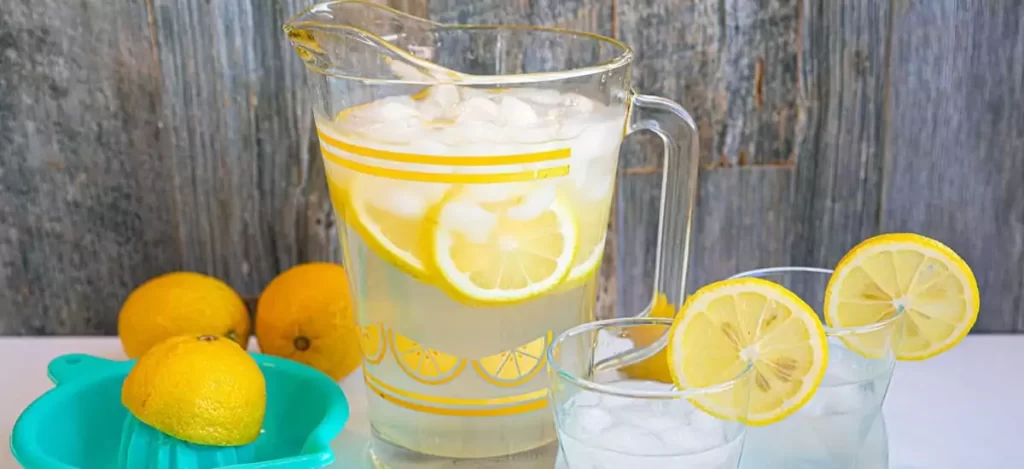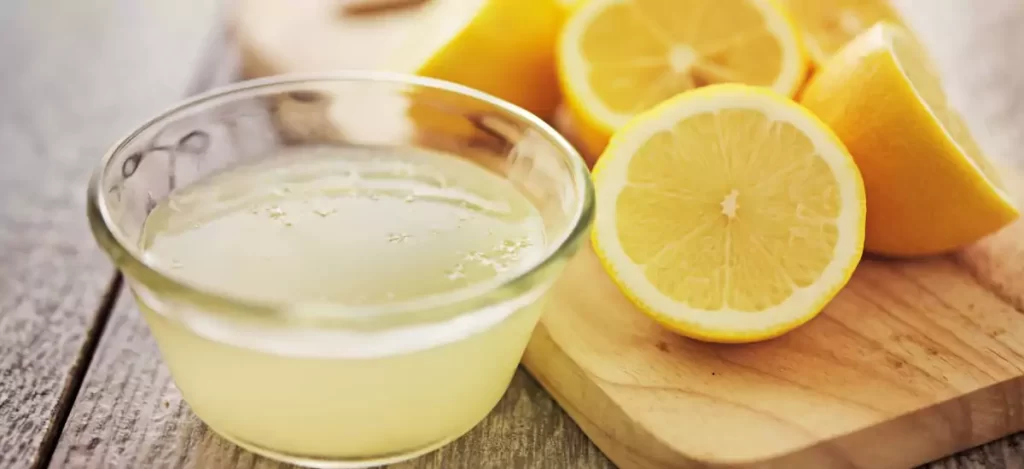Yes, lemon juice does go bad. You might think that lemon juice’s citric acid will preserve it from deteriorating. While this is true to some extent, it doesn’t help much.
Bacteria will infiltrate and destroy lemon juice if it is left out at room temperature or in a hot room. Consuming rotten lemon juice may result in food poisoning, which is both unpleasant and even hazardous.
In this article, we discuss all you need to know about freshly squeezed and bottled lemon juice. You will understand how long they last, how to keep them, and how to tell if it’s spoiled.
When Does Lemon Juice Go Bad?
Like any other food product, lemon juice does go bad. But, If properly stored, freshly squeezed lemon juice lasts 3 to 4 days.However, if you keep freshly squeezed lemon juice in the open, it will go bad within a day.

If you buy it at the grocery store, it typically has a slightly longer shelf life of a couple of months, and the label instructs you to consume it within a couple of days after opening.
How To Tell If Lemon Juice Is Bad?
Check three things to see whether your lemon juice is bad: its appearance, odor, and taste.
- When juice is spoiled, it turns a deeper yellow tint. When you taste it, you’ll notice that the tanginess has faded. Moreover, it will also have an unpleasant odor. In such a case, throw it away immediately. Lemon juice should also be discarded from bottles that leak, bulge, or are damaged.
- In addition to this, if you discover a spot of mold on your lemon juice, immediately drain it out and clean the container before tossing or recycling it.
- Any moldy food item has the potential to infect other goods in your refrigerator and kitchen.
- As a general guideline, if your freshly squeezed lemon juice has been sitting at room temperature for longer than a day, discard it.
How To Store Lemon Juice
Lemon juice should be stored in the same way that other juices are. That implies it should be kept in a cold, dark place, away from heat sources.
If it’s a clear plastic container, keep it away from the light as well. The pantry is ideal, but any cabinet in the kitchen can suffice.

While you open the bottle or container, make sure to keep it firmly closed when not in use. Second, keep it in the refrigerator for optimal benefits.
Freezing lemon juice is another method. You can simply defrost as much juice as you need for a recipe if you freeze it in ice cube trays. Alternatively, toss a cube or two into a glass of water for a refreshing drink on a hot day.
Additional Tips To Store Lemon Juice
- Freshly squeezed lemon juice should be refrigerated in an airtight bottle or container. It will be fresh for three days.
- Light, even light from the fridge, degrades the quality of the juice. To exclude light, store the juice in a dark bottle or wrap dark paper over the bottle or jar. Furthermore, lemon juice may be securely frozen, and the frozen fresh juice can be stored for up to 6 months.
- Another approach for storing lemon juice in the fridge or freezer is to use a home vacuum seal.
- Fill a sealable plastic bag halfway with juice. Stand it up to avoid spilling the liquid.
- Insert a straw into one of the bag’s corners. Seal it almost completely, leaving the straw out.
- Squeeze all of the air out of the bag, which will escape through the straw.
- When finished, quickly remove the straw and close the bag.
Does Lemon Juice Need To Be Refrigerated?
Yes, lemon juice needs to be refrigerated, especially fresh lemon juice. This is essential to preserve the quality of the juice so that it can be used for a longer period of time.

How Long Does Lemon Juice Last?
If it’s freshly squeezed lemon juice, it’ll last only a few days, provided it’s stored properly in a dark and cool place away from direct sunlight. On the other hand, bottled lemon juice lasts for many months depending on the amount of preservatives used in it.
- Fresh Lemon Juice
If refrigerated in a closed container, freshly squeezed lemon juice will last around 3 to 4 days. It should be safe for a few more days, but if you need it to last longer, freeze any leftovers.
Because fresh lemon juice has no preservatives to extend its shelf life, it only lasts a few days. Because fresh lemon juice has a very limited shelf life, it is a good choice to freeze it. Use as much juice as you need for lemonade or a recipe, then freeze the remainder.
- Bottled Lemon Juice
When it comes to commercially bottled lemon juice, the quality differs greatly. Some lemon juice bottles include preservatives that keep the juice fresh for several months. The juice will keep for over a year if the bottle remains unopened.
Once the bottle is opened, the contents should be good for at least six months. Some manufacturers use very little preservatives in their products, so they only last a few days before going bad: a week, maybe two weeks at best.
- Expired Lemon Juice
If you have an expired bottle of lemon juice, you should be able to use it for 1 to 3 months without any doubts on its quality. This is because the best before date mentioned on the label of the bottle is more of a conservative estimate.
Obviously, the sooner you use it, the better, but it’s not like it’ll deteriorate after a few days. The worst that may happen is that the quality will be somewhat bad.
Frequently Asked Questions
1. Is it OK to use expired lemon juice?
Consuming stale lemon juice, whether directly or blended into food, can result in severe food poisoning. Bacteria, mold, and yeast can contaminate lemon juice if it is not stored correctly or is allowed to go beyond its best by date, providing a risk of poisoning.
2. How long can you keep lemon juice in the fridge?
If kept correctly, lemon juice can keep up to four days in the fridge. Because the juice loses flavor and sourness over time, it is best utilized soon after it is strained from fresh lemons.
3. How long does bottled lemon juice last once opened?
Once opened, it can last up to six months in the fridge. Preservatives will be applied to the majority of store-bought versions. The more preservatives there are in the juice, the longer it will last.
